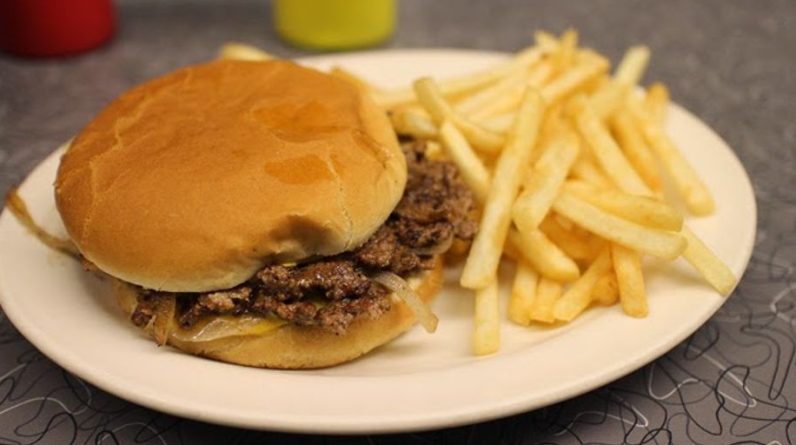Losing weight can be a challenging journey, but with the right strategies, it is possible to achieve your weight loss goals effectively. In this article, we will explore the basics of weight loss, create a healthy diet plan, incorporate regular physical activity, manage stress and emotional eating, and track progress to stay motivated. By implementing these science-backed strategies, you can lose weight in a safe and sustainable way.
Contents
Key Takeaways
- Understanding the basics of weight loss is essential for successful weight management.
- Creating a healthy diet plan involves choosing nutrient-dense foods, practicing portion control and mindful eating, and meal planning.
- Incorporating regular physical activity is crucial for weight loss, including finding an exercise routine that works for you, engaging in cardiovascular exercises, and strength training.
- Managing stress and emotional eating involves identifying triggers and coping mechanisms, practicing stress-relief techniques, and seeking support from professionals.
- Tracking progress and staying motivated can be achieved through the use of technology and apps, celebrating milestones and non-scale victories, and building a supportive network.
Understanding the Basics of Weight Loss

The Science Behind Weight Loss
Weight loss can seem like an overwhelming task, but it all comes down to consuming fewer calories than your body needs. By doing so, your body taps into its stored body fat for energy, leading to weight loss. While diets are often centered around elimination of food groups, fasting, and special supplements, there are alternative approaches you can take to lose weight while still enjoying your favorite foods. Here are a few of the key takeaways for understanding the basics of how weight loss works:
- Reducing portion sizes can help prevent weight gain and promote weight loss.
- Focusing on consuming nutrient-dense foods can be more impactful than specific diets.
- Practicing mindful eating can help avoid overeating.
- Staying hydrated throughout the day can help reduce cravings and boost metabolism.
- Regular physical activity, such as strength training, walking or
Factors Affecting Weight Loss
Understanding the basics of weight loss is essential for achieving your weight loss goals. It involves consuming fewer calories than your body needs, which leads to tapping into stored body fat for energy. While diets often focus on elimination and special supplements, there are alternative approaches that allow you to lose weight while still enjoying your favorite foods. Here are a few key takeaways:
Setting Realistic Goals
When setting weight loss goals, it’s important to think big and focus on the ‘big rocks’ that will give you the most bang for your buck. Prioritize areas such as calories, protein, and fiber in your nutrition plan, and prioritize strength training, daily steps, and recovery in your exercise routine. Start where you are currently and gradually work your way up to a goal of 10,000 steps per day. Remember, it’s not just about the number on the scale. Take regular photos and measurements, and keep a list of nonscale victories to track your progress.
Creating a Healthy Diet Plan

Choosing Nutrient-Dense Foods
Choosing nutrient-dense foods is an essential part of creating a healthy diet plan. Nutrient-dense foods are whole, unprocessed foods that are low in calories yet high in essential vitamins and minerals. These foods provide the necessary nutrients your body needs while supporting weight loss and overall health. Include a variety of fruits and vegetables, whole grains, and healthy sources of protein in your meals. Some examples of nutrient-dense foods include quinoa, edamame, beans, seeds, nuts, eggs, yogurt, cheese, tofu, poultry, fish, and meat.
Portion Control and Mindful Eating
Implementing portion control and practicing mindful eating are effective strategies for losing weight. By planning your meals and snacks ahead of time, you can make healthier choices and include fiber-rich foods in your diet. Aim for 28-34 grams of fiber per day, as sources of soluble fiber help regulate blood sugar and fat levels. Using smaller plates and bowls, and avoiding eating from serving containers, can also help prevent overeating.
Meal Planning and Preparation
Menu planning is a great way to stay organized and ensure a balanced plate. It helps you know what groceries you need to buy and what you already have on hand. Having a menu plan can prevent scrambling at mealtimes and make it easier to stick to your healthy eating goals.
Here are some tips for effective meal planning:
-
Consider your week, events, meetings, work and school schedules, and plan accordingly. If no one will be home at dinner time, a crockpot meal may be the best option. If you need a quick and easy dinner, have some deli meat and sandwich fixings ready for a made-to-order meal.
-
Batch cook foods like taco meat or a healthy casserole on the weekends so leftovers are available for lunch and dinner. You can also make egg cups for a quick protein boost in the morning.
-
Make a grocery list based on your menu plan. This will help you stay organized and avoid impulse purchases. Stick to your list when you go shopping.
Remember, menu planning is flexible. It’s okay to have a night off from cooking and order takeout or make a frozen meal. The important thing is to have a plan and stick to it as much as possible.
Incorporating Regular Physical Activity

Finding an Exercise Routine That Works for You
Finding the right exercise routine is crucial for long-term success in weight loss. It’s important to choose activities that you enjoy and that fit into your schedule. Start by incorporating small bouts of exercise into your daily routine, even just 10 minutes can make a difference. This can include activities like walking, biking, or dancing. Gradually increase the duration and intensity of your workouts as you build strength and endurance. Remember to listen to your body and choose exercises that are safe and appropriate for your fitness level.
Cardiovascular Exercises for Weight Loss
Cardiovascular exercises are an essential component of any weight loss program. These exercises increase your heart rate and help burn calories effectively. Some popular cardiovascular exercises include brisk walking, jogging, swimming, dancing, and even performing chores around the house. These activities boost your cardio fitness and contribute to weight loss. Additionally, high-intensity interval training (HIIT) is an excellent option for burning calories and boosting metabolism. HIIT involves short bursts of intense exercise followed by brief rest periods. Incorporating a variety of cardiovascular exercises into your routine can help you achieve your weight loss goals.
Strength Training for Building Lean Muscle
Strength training is an essential component of any weight loss program. It not only helps in building lean muscle but also reduces body fat. Incorporating strength training exercises into your workout routine can have numerous benefits. One effective exercise for building lean muscle is lunges. Lunges mainly focus on strengthening your back, hips, and legs. They help in developing balance, stability, and coordination. To perform lunges, stand straight with your back and abs upright. Bend your knee by keeping your right leg in front and lower your body until your right thigh is parallel to the ground. Repeat these steps with your left leg. Including lunges in a high-intensity workout routine with heavyweights can yield great results.
Managing Stress and Emotional Eating

Identifying Triggers and Coping Mechanisms
Identifying triggers and coping mechanisms is an essential step in managing stress and emotional eating. It is important to recognize the situations or emotions that lead to unhealthy eating habits and find alternative ways to cope with them. One effective strategy is to keep a daily gratitude journal, where you can write down things you are grateful for and reflect on positive aspects of your life. This practice can help shift your focus away from food as a coping mechanism and towards gratitude and positivity. Additionally, practicing self-care and relaxation techniques, such as deep breathing and mindfulness, can help you stay calm in challenging moments. If these strategies are not enough, it may be beneficial to seek support from a qualified mental health expert or therapist for specialized advice.
Practicing Stress-Relief Techniques
Stress can have a significant impact on weight loss efforts. When we’re stressed, we may use food as a coping mechanism, which can hinder our progress. It’s important to find effective stress-relief techniques to manage stress and avoid emotional eating. One technique is to keep a daily gratitude journal, where you write down things you’re grateful for to help cope with stress. Another technique is deep breathing and mindfulness, which can help you stay calm in challenging moments. If these techniques fall short, it’s recommended to consult a qualified mental health expert or therapist for specialized advice.
Seeking Support from Professionals
Seeking support from professionals is an important step in your weight loss journey. Mental health care should be considered before attempting weight loss, as it can provide valuable guidance and support. A therapist can help address any underlying emotional issues that may be contributing to weight gain or making it difficult to lose weight.
Additionally, consulting with a registered dietitian-nutritionist can provide personalized advice and guidance on creating a healthy and sustainable diet plan. They can help you make informed choices about nutrient-dense foods, portion control, and mindful eating.
Remember, seeking professional support is not a sign of weakness, but rather a proactive step towards achieving your weight loss goals.
Tracking Progress and Staying Motivated

Using Technology and Apps for Monitoring
Using a mobile app for tracking your food intake and exercise can be a valuable tool in your weight loss journey. These apps allow you to monitor not only your calorie intake, but also your macronutrient intake, ensuring a balanced and nutritionally sound diet. They can also highlight eating patterns and areas for improvement, empowering you to make healthier choices. Additionally, these apps can assist in meal planning and preparation, making it easier to adhere to your dietary goals and resist impulsive, less healthy food choices. By using a tracking app, you can improve accountability, encourage mindfulness, and foster a greater awareness of your daily calorie intake.
Celebrating Milestones and Non-Scale Victories
When it comes to weight loss, it’s important to celebrate not only the number on the scale but also the non-scale victories along the way. These victories can be small achievements that indicate progress and positive changes in your health and lifestyle. Here are some ways to celebrate milestones and non-scale victories:
- Keep a journal or list of your achievements, such as fitting into a smaller clothing size or completing a challenging workout.
- Treat yourself to a non-food reward, like a spa day or a new workout outfit.
- Share your progress with friends and family who can provide support and encouragement.
Remember, weight loss is not just about the numbers. Celebrating your non-scale victories can help keep you motivated and focused on your journey.
Building a Supportive Network
Building a supportive network is crucial for successful weight loss. Having a strong support system provides motivation, accountability, and guidance throughout your journey. Whether it’s family and friends, a coach, or an online community, having people who understand and support your goals can make a significant difference. Participating in an online support group, for example, has been shown to increase motivation. Research has also found that social support is associated with better adherence to weight loss behaviors. Embracing setbacks and finding your ‘why’ are important mindset factors in achieving long-term success.
Tracking progress and staying motivated are essential aspects of any journey towards self-improvement. Whether you’re working on your physical fitness, personal development, or career goals, it’s important to have a system in place to track your progress and stay motivated along the way. At Beauty Trend, we understand the importance of staying motivated and achieving your goals. Our website is dedicated to helping you discover beauty tips, trends, and more. With our expert advice and resources, you can stay on track and achieve the results you desire. Visit Beauty Trend today and take the first step towards a more beautiful you!
Frequently Asked Questions
What is the science behind weight loss?
Weight loss occurs when you consume fewer calories than your body needs, causing it to tap into stored body fat for energy.
What factors affect weight loss?
Factors such as genetics, metabolism, physical activity, and diet can all impact weight loss.
How do I set realistic weight loss goals?
Setting realistic goals involves considering your current weight, health status, and lifestyle, and aiming for gradual and sustainable weight loss.
How can I choose nutrient-dense foods?
Choose foods that are rich in nutrients but low in calories, such as fruits, vegetables, whole grains, and lean proteins.
What is mindful eating and how can it help with weight loss?
Mindful eating involves paying attention to the taste, texture, and satisfaction of food, and can help prevent overeating and promote healthier food choices.
How can I find an exercise routine that works for me?
Experiment with different types of exercises and activities to find what you enjoy and can stick to consistently.







